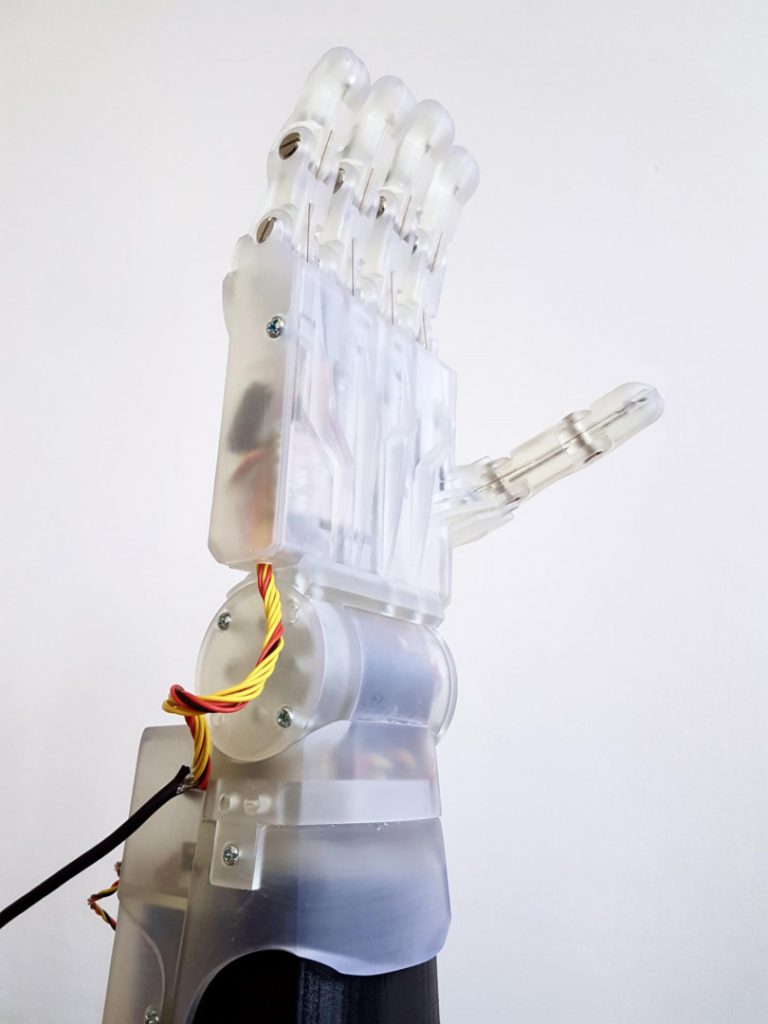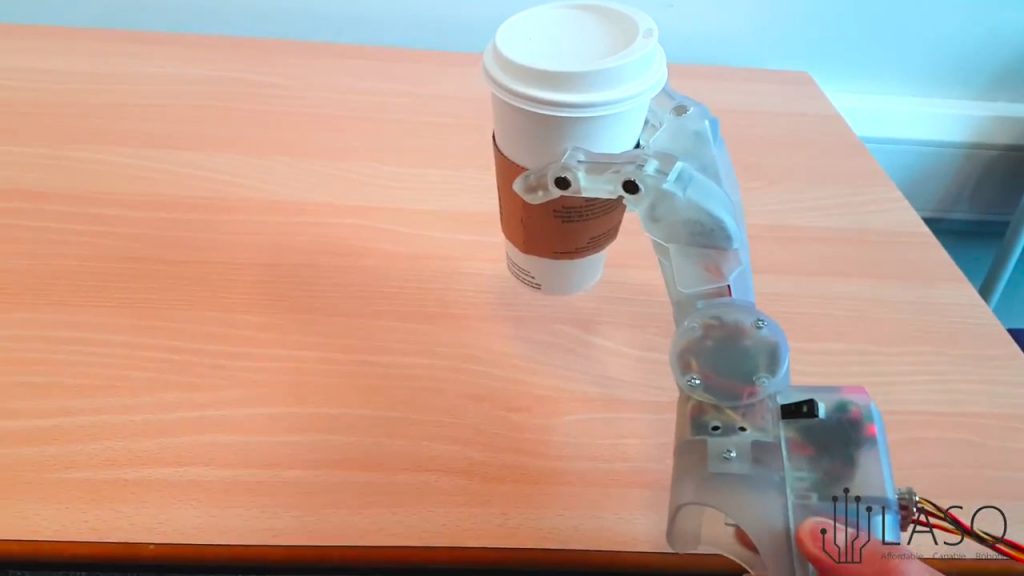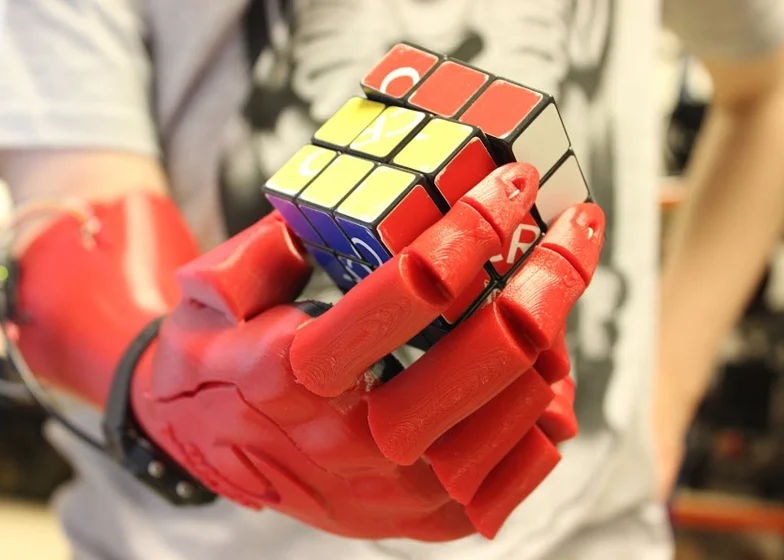Researchers at the University of Manchester have pioneered an exceptionally affordable 3D printed robotic prosthetic hand, revolutionizing assistive technology for amputees. This innovative device offers groundbreaking functionality, and its complete customization is facilitated through an Android app.
Designers from the University of Manchester have leveraged 3D printing to create a robotic hand prosthetic. This technological advancement has the potential to dramatically reduce production costs of assistive devices, presenting a more accessible option for amputees.
This cutting-edge prosthetic transcends mere affordability; it signifies a functional leap beyond conventional counterparts. The hand’s joints offer full posability, empowering each finger and thumb with independent movement. In practical scenarios, the 3D printed hand empowers amputees to undertake everyday tasks, including grasping objects, using cutlery, operating a mouse, and even playing games like rock-paper-scissors.
Unlike traditional prosthetics that often come with steep price tags, this prototype disrupts the norm. The engineering team at the University of Manchester crafted the hand for approximately £307 ($433 USD), with expectations of further cost reduction. For context, comparable advanced prosthetics typically range from £25,000 ($35,000 USD) to £60,000 ($85,000 USD).

Functional and Innovative: Prosthetic Hand Advances Through 3D Printing
The robotic prosthetic was crafted through 3D printing using stereolithography (SLA) technology. This technique employs resin material, solidified into a 3D model with a high-powered laser. The researchers also aim to explore Fused Deposition Modeling (FDM) 3D printing, which has potential to further reduce costs.
The UK’s National Health Service (NHS) reports roughly 6,000 annual limb amputations in the country. While non-robotic limbs serve cosmetic purposes, robotic alternatives hold the potential to profoundly enhance lives by restoring functionality.
The researchers at the University of Manchester aspire to blend function with aesthetics, creating a prosthetic that amputees can proudly wear. Alex Agboola-Dobson, a Mechanical Engineering Master at the university, emphasized, “Our goal is to not only make it affordable, but to also craft a design that people genuinely appreciate and don’t feel ashamed or embarrassed to use or wear. Many conventional prosthetics can appear and feel unwieldy or, if they don’t, are prohibitively expensive. We believe our design has the power to make a meaningful difference, and we’re exploring commercialization opportunities for the project.

And, if that isn’t interesting enough, the prototype also includes a Bluetooth connection and also comes with its own Android app. This enables wearers to control the robotics via muscle sensors on the arm. Additionally, the extent of the prosthetic hand’s functionality is fully customizable through the Android app.
Recently, the design of the prosthetic hand won an award for the “Best New Development” in the Digital Innovation Challenge at the recent Industry 4.0 Summit and Factories of the Future Expo.
The project was led by mechanical engineer Alex Agboola-Dobson, who received assistance from lead electrical engineer Sebastian Preston-Jensen, lead software engineer Panagiotis Papathanasiou, as well as mechanical and software engineers Maximillian Rimmer and Shao Hian Liew.






